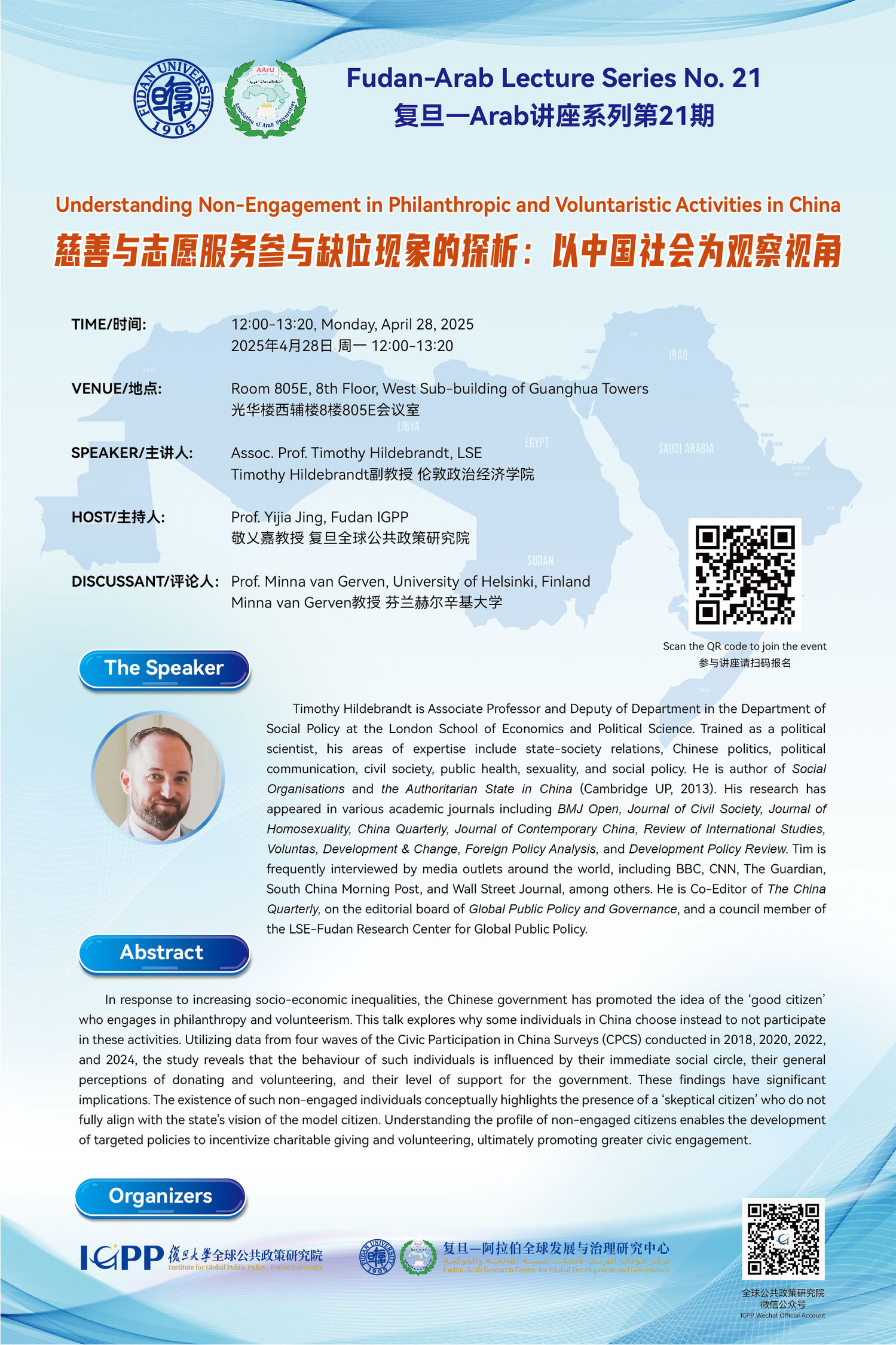
Fudan-Arab Lecture Series No.21
Title:
Understanding Non-Engagement in Philanthropic and Voluntaristic Activities in China
Speaker:
Assoc. Prof. Timothy Hildebrandt, LSE
Host:
Prof. Yijia Jing, Fudan IGPP
Discussant:
Prof. Minna van Gerven, University of Helsinki, Finland
Time:
12:00-13:20, Monday, April 28, 2025
Venue:
Room 805E, 8th Floor, West Sub-building of Guanghua Towers
https://www.wjx.cn/vm/wFKuWCP.aspx#

The Speaker:

Timothy Hildebrandt is Associate Professor and Deputy of Department in the Department of Social Policy at the London School of Economics and Political Science. Trained as a political scientist, his areas of expertise include state-society relations, Chinese politics, political communication, civil society, public health, sexuality, and social policy. He is author of Social Organisations and the Authoritarian State in China (Cambridge UP, 2013). His research has appeared in various academic journals including BMJ Open, Journal of Civil Society, Journal of Homosexuality, China Quarterly, Journal of Contemporary China, Review of International Studies, Voluntas, Development & Change, Foreign Policy Analysis, and Development Policy Review. Tim is frequently interviewed by media outlets around the world, including BBC, CNN, The Guardian, South China Morning Post, and Wall Street Journal, among others. He is Co-Editor of The China Quarterly, on the editorial board of Global Public Policy and Governance, and a council member of the LSE-Fudan Research Center for Global Public Policy.
In response to increasing socio-economic inequalities, the Chinese government has promoted the idea of the ‘good citizen’ who engages in philanthropy and volunteerism. This talk explores why some individuals in China choose instead to not participate in these activities. Utilizing data from four waves of the Civic Participation in China Surveys (CPCS) conducted in 2018, 2020, 2022, and 2024, the study reveals that the behaviour of such individuals is influenced by their immediate social circle, their general perceptions of donating and volunteering, and their level of support for the government. These findings have significant implications. The existence of such non-engaged individuals conceptually highlights the presence of a ‘skeptical citizen’ who do not fully align with the state's vision of the model citizen. Understanding the profile of non-engaged citizens enables the development of targeted policies to incentivize charitable giving and volunteering, ultimately promoting greater civic engagement.





